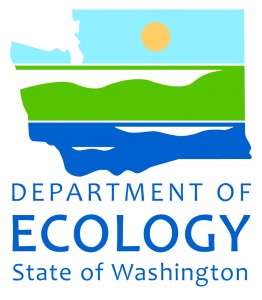On January 31st of 2014, the USEPA’s Solvent Wipe Rule became effective at the Federal level and in those states lacking authorization under RCRA to operate their own hazardous waste program. As a state with an authorized hazardous waste program, Michigan has the option to adopt the new Federal Rule in its entirety, adopt it in part, or reject it outright and manage solvent-contaminated wipes by its own state rules. The purpose of this article is to explain the regulatory requirements for the management of solvent-contaminated wipes by a hazardous waste generator in Michigan.
The Solvent Contaminated Wipes Rule in Michigan
Waste Prohibited from Landfill Disposal in Michigan
The following wastes are prohibited from landfill disposal under Part 115 of Act 451:

- Used oil
- Whole tires
- Liquid waste. Liquid Industrial Waste is subject to strict regulation in Michigan.
- Returnable beverage containers. Find a designated collection site and make some money on your returns!
- Lead acid batteries. Manage pursuant to Part 111 of Act 451, R 299.9206(2)(d), if reclaimed.
- Yard clippings. For disposal options, search the MDEQ website for registered composting facilities.
- Medical waste. A universal waste in Michigan.
- Sewage
- Asbestos unless the landfill meets specific federal requirements.
- Empty drums unless crushed.
- Hazardous waste from Small Quantity Generators (SQG) and Large Quantity Generators (LQG) of hazardous waste. Waste from a Conditionally Exempt Small Quantity Generator (CESQG) of hazardous waste is OK.
- Low level radioactive waste.
- PCB waste unless the landfill meets specific requirements.
For more information about wastes banned from landfill disposal in Michigan: MDEQ Prohibited Wastes.
| Daniels Training Services815.821.1550Info@DanielsTraining.comhttps://danielstraining.com/ |
Interested in more? Register now for my Training Seminar (USEPA Hazardous Waste & USDOT HazMat Transportation) in Detroit on April 23, 2015!
Hazardous Waste Container not Labeled = RCRA Violation for Delaware Body Shop
The Bullet:
It does not appear that any fines were issued, but a simple violation of the state hazardous waste regulations could have been avoided with a little knowledge.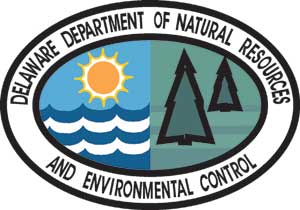
Who:
Enforcement Agency: Delaware Department of Natural Resources and Environmental Control (DNREC)
DNREC Contact: Davis, William B
Violator: Brandywine Body Shop
What:
Enforcement Number: 2014-11975 Program: Solid & Hazardous Waste
Where:
Brandywine Body Shop 1325 Newport Gap PikeWilmington DE
When:
Date violation discovered: 08/19/2014
Date corrected: 08/19/2014
Date notice of violation served: 11/28/2014
Why:
Containers of hazardous waste were not marked with the words “Hazardous Waste” or with other words that identify the contents of the containers.
How:
As a state with an authorized hazardous waste program, Delaware may conduct RCRA compliance inspections of businesses within its borders and issue violations and fines for non-compliance.
Conclusion:
Something as simple as failing to label a hazardous waste container resulted in a violation for this business. If you don’t have the time or resources for my Onsite Training or for one of my Training Seminars, consider the low-cost and quick alternative to formal training that will bring you into compliance: Webinar Training.
| Daniels Training Services815.821.1550Info@DanielsTraining.comhttps://danielstraining.com/ |
Training for a CESQG in Colorado
As a state with an authorized hazardous waste program, Colorado had the ability to make its state regulations more stringent and more broad than those of the USEPA; and it has. The Colorado hazardous waste regulations enforced by the Hazardous Materials and Waste Management Division of the Colorado Department of Public Health and Environment (CDPHE) are more strict than those of the USEPA.

For the regulations pertaining to hazardous waste management in Colorado, one must refer to 6 CCR 1007-3 of the Colorado Code of Regulations. However, many responsibilities of a hazardous waste generator are not found in the regulations but in the guidance and compliance documents of a regulatory agency; and the training requirement for a Conditionally Exempt Small Quantity Generator of hazardous waste in Colorado are a good example of this. (more…)

Notification of a Hazardous Waste Emergency in Missouri
The regulations of the USEPA at 40 CFR 264 and 265 are applicable primarily to Treatment, Storage, and Disposal Facilities (TSDFs) that are required to operate under the conditions of a RCRA subpart C permit due to their handling of hazardous waste. Some of these regulations, however, are also applicable to generators of hazardous waste; such as 40 CFR 264/265, Subpart C Preparedness and Prevention to which both a Small Quantity Generator of hazardous waste and a Large Quantity Generator of hazardous waste are subject. Conversely, 40 CFR 264/265, Subpart D Contingency Plan and Emergency Procedures is not applicable to an SQG though it remains applicable to an LQG.
Though States with an authorized hazardous waste program under RCRA are capable of making these regulations more strict and more broad, I have found that most States simply adopt both Subparts C & D by reference into their regulations. In these States compliance with the USEPA Federal rule ensures compliance with State regulations as well. Sometimes, however, a State can surprise you by throwing in some state-specific requirements after it has adopted the Federal rule. One example of this is in Missouri where the MO Department of Natural Resources operates the hazardous waste program. (more…)
(more…)
The 2015 Environmental Trade Fair and Conference Presented by the TCEQ is Approaching!
I can’t recommend enough the annual Environmental Trade Fair and Conference (ETFC) presented by the Texas Commission on Environmental Quality (TCEQ). These two days are a conference, convention, expo, network-building, customer/client interaction, relationship building, skill improving, knowledge enhancing…great time, deep in the heart of Texas!

Though I missed the ETFC in 2014, I attended my first in 2013 and found it very helpful in improving the breadth and depth of my knowledge of the TCEQ regulations. While I’m there entirely for issues related to waste management, there are exhibits and educational seminars on a variety of environmental regulatory topics. Representatives of the TCEQ are there to answer your questions, so you know you are getting it right from the source.
With all the time spent learning from the TCEQ staff, I had to speed through the exhibit floor as fast as I could and an entire day wasn’t enough to see all the exhibitors – let alone speak with them. The exhibitors I did speak with were from throughout the environmental industry and I came away with many good contacts In several cases I was finally able to meet people face-to-face that I had done business with over the phone for years.
Daniels Training Services 815.821.1550 |
If you go, and I advise that you do, be prepared for two full days of networking and learning.
Mark your calendars for the 2015 Environmental Trade Fair & Conference (ETFC), May 5-6 2015, at the Austin Convention Center.
Exhibit booth sales will be opening soon:
| Six or more booth sales | Monday, October 20th at 9:00 am CST |
| Four or more booth sales | Tuesday, October 21st at 9:00 am CST |
| Three or more booth sales | Wednesday, October 22nd at 9:00 am CST |
| *Pre-set Double booth sales | Thursday, October 23rd at 9:00 am CST |
| One or more booth sales | Monday, October 27th at 9:00 am CST |
*Pre-set double booths – Designated booths will be available on Oct 23rd.
If you would like to purchase double booths not on sale on Oct. 23rd, you may purchase any available booths on October 27th.
Attendee Registration will open Monday, November 3rd at 9:00 am.
For more information on the ETFC, go to:
2015 Environmental Trade Fair and Conference
One more thing – If your Texas business generates a hazardous waste, universal waste, used oil, or a non-hazardous industrial solid waste, I advise you to attend my one-day (8 hour) training seminar held each year in Houston (January 2015, exact date TBD) and Dallas/Fort Worth (August 2015, exact date TBD). Find me at the 2015 ETFC and I’ll give you a promotional code you can use for one of my training seminars in 2015!
Interested in a Training Seminar that covers this topic, and more? |
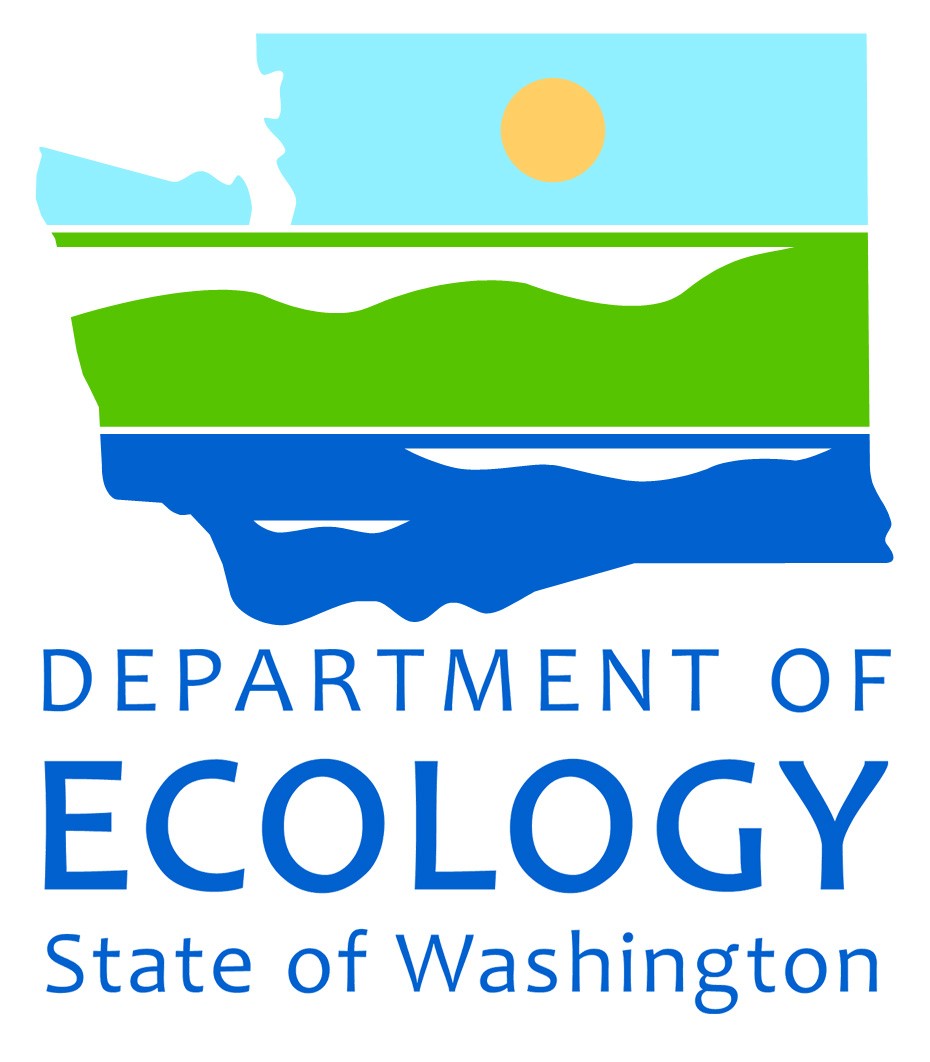
Metal Finisher in Seattle pays $24,000 to Settle Hazardous Waste Violations After Corrections are Made
The Bullet:
A firm that applies rust-resistant coating to iron and steel has corrected past environmental violations, but will pay a $24,000 fine for having allowed the non-compliance to occur. More…
Who:
Washington State Department of Ecology
- Larry Altose, communications, 425-649-7009, @ecySeattle
- Daylin Davidson, regional hazardous waste compliance unit leader, 426-649-7090
Ace Galvanizing Inc.
What:
Repeated violations included:
- Not properly labeling dangerous waste containers.
- Not keeping the containers closed.
- Not dating containers to ensure disposal within a required 90-day limit for a Large Quantity Generator of dangerous waste.
Not sure of your hazardous waste generator status? |
Ace Galvanizing has since cooperated with Ecology and come into compliance with the regulations.
Where:
Facility is located at: 429 South 96th St. Seattle, WA 98108
When:
Violations were found by Department of Ecology inspectors during four site visits in 2012, 2013, and 2014.
News Release – September 30, 2014
Why:
“Improper handling of dangerous wastes can expose workers, the public and the environment to safety and health hazards.”
How:
It appears that State of Washington Department of Ecology inspectors were patient with this facility and its past ownership. But it finally determined that the threat to human health and the environment was not going to be addressed without a formal enforcement action.
Daniels Training Services 815.821.1550 |
Conclusion:
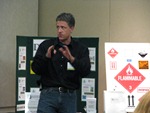
My RCRA training does more than just meet the regulatory requirements at 40 CFR 265.16. It will also answer your questions and shed a lot of light on the hazardous waste regulations of your state. At the conclusion of my Onsite Training, all of your facility personnel will know what compliance means and will have the tools to obtain and maintain it. Contact me for a free training consultation.

Royal Farms Store in Dover, DE Issued RCRA Violation for not Conducting a Hazardous Waste Determination
The Bullet:
A Dover, DE store in the Royal Farms chain was issued a violation by the Delaware Department of Natural Resources and Environmental Control for a simple – but common – violation of the State’s hazardous waste regulations.
Contact me with any questions you may have about the transportation of hazardous materials by air, highway, vessel, or rail International and Domestic Daniels Training Services 815.821.1550 |
Who:
Royal Farms Store #139 of the Royal Farms chain of retail stores.
Delaware Department of Natural Resources and Environmental Control (DNREC). DNREC Contact: William Davis
What:
As a generator of a solid waste, the store failed in its responsibility under both Federal and State regulations to conduct, and document, a hazardous waste determination.
Where:
Royal Farms Store #139 6 West Lebanon Road Dover, DE 19901When:
Date Discovered: 05/02/2014
Enforcement Action Served Date: 07/22/2014
Date Corrected: 08/21/2014
Why:
A person that discards any material generates a solid waste. Unless that person is exempt from regulation under the Resource Conservation and Recovery Act (RCRA) – and this store clearly is not – they must conduct a hazardous waste determination. This determination must be documented (no format is specified) and a record kept for at least three years from the last date the waste was shipped off-site for treatment, disposal, or recycling.
How:
The state of Delaware – like most other states – has an authorized hazardous waste program which requires it to enforce the RCRA regulations within its borders. A state that does not enforce its regulations stands to loose its authorization to manage its own hazardous waste program.
Conclusion:
A person can be forgiven of thinking that the hazardous waste regulations of RCRA apply only to large industries, utilities, landfills, and the like. It can be surprising to learn that a local retail store is subject to the same regulations. First and foremost among the RCRA regulations is to conduct a hazardous waste determination. From that, a solid waste generator can determine what status of hazardous waste generator they are, and what regulations apply to the cradle-to-grave management of their hazardous waste.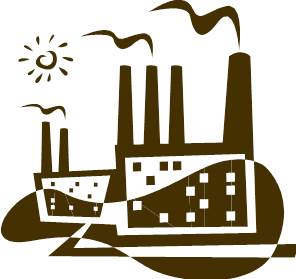
Not sure of your hazardous waste generator status? |
Don’t wait for a Notice of Violation from your state to learn you are subject to the regulations. Contact me and I can assist you with the hazardous waste determination and any training you may require as well.
Household Hazardous Waste Collection in Illinois – Fall of 2014
Hazardous waste generated by a household – including single and multiple residences, hotels and motels, bunkhouses, ranger stations, crew quarters, campgrounds, picnic grounds and day-use recreation areas – is specifically excluded from regulation as a hazardous waste at 40 CFR 261.4(b)(1), review my presentation: The Household Waste Exclusion from Definition as a Hazardous Waste [40 CFR 261.4(b)(1)]. That doesn’t mean you can – or should – throw all of your dangerous household waste into the trash. Many states and communities organize Household Hazardous Waste Collection sites as a way to gather and properly dispose of hazardous waste generated in households, and Illinois is no exception. Recently announced in the Illinois Environmental Protection Agency (IEPA) Citizens’ Bulletin (Fall 2014) are the remaining dates and locations for Household Hazardous Waste Collection Events in 2014 and the locations, hour-of-operation and phone numbers for the four (4) long-term household hazardous waste collection facilities it supports.
If you live in Illinois, desire to ensure the proper disposal of any household hazardous waste, but don’t want to hold on to it all in your basement until 2015, I suggest you do what you can to make it to one of these locations.
And don’t try to take in any waste – hazardous or otherwise – from your place of business!
Hazardous waste generated in and shipped from a household by a private citizen does not require RCRA Training or HazMat Employee Training. Such activity from a business does mandate such training. After you’ve ensured the proper disposal of your household hazardous waste, contact me for a free training consultation regarding the hazardous waste you generate at your employer.
Illinois EPA Fall Household Hazardous Waste Collection Events
The remaining household hazardous waste collections scheduled for the fall of 2014 are included below. Through household hazardous waste collections, citizens are given the opportunity to safely dispose of unused or leftover household products commonly found in homes, basements and garages.
Each one-day collection is scheduled from 8 a.m. to 3 p.m. on the specified Saturday:
- September 27, 2014 Monticello, 904 Allerton Road, Piatt County
- October 4, 2014 Lombard, Village of Lombard Public Works, 1051 South Hammerschmidt Avenue, DuPage County
- October 11, 2014 Lincoln, County Fairgrounds, 1408 Short 11th Street, Logan County
- October 18, 2014 Oregon, 421 West Pines Road, Ogle County
In addition to the above one-day collections, the Illinois EPA also continues to support the following long-term collection facilities:
- Naperville, Fire Station #4, 1971 Brookdale Road, DuPage County Hours: Saturdays 9:00 AM – 2:00 PM, Sundays 9:00 AM – 2:00 PM, Phone: 630-420-6095
- Rockford, Rock River Reclamation District, 3333 Kishwaukee, Winnebago County Hours: Saturdays8:00 AM – 4:00 PM, Sundays Noon – 4:00 PM, Phone: 815-987-5570
- Chicago, Goose Island, 1150 North Branch, Cook County Hours: Tuesdays 7:00 AM – Noon, Thursdays 2:00 AM – 7:00 PM, and First Saturday of every month 8:00 AM – 3:00 PM, Phone: 312-744-7672
- Gurnee, 1311 N. Estes Street, Lake County *Other collections are held through the Solid Waste Agency of Lake County (SWALCO). Contact SWALCO by phone: 847-336-9340 or website:www.swalco.org for more information.
Waste Management in Nevada
A summary of the state regulations of Nevada pertaining to the management of hazardous waste, universal waste, used oil, and non-hazardous waste.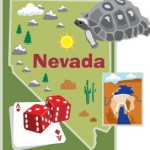
This information is provided as guidance only. Do not use to determine compliance with either State or Federal Regulations.
State Environmental Agency:
The Nevada Division of Environmental Protection (NDEP) is authorized by the USEPA to manage the regulations of the Resource Conservation and Recovery Act (RCRA) in Nevada.
The Regulations:
State regulations for the management of hazardous waste are found in the Nevada Administrative Code and the Nevada Revised Statutes.
Hazardous Waste Generator Status:
Nevada follows the Federal Rules for the definition of hazardous waste generator status:
- Generate ≥1,000 kg/mo hazardous waste or >1 kg/mo acute hazardous waste or >100 kg/mo acute hazardous waste spill residue or soil = Large Quantity Generator of hazardous waste (LQG).
- Generate >100 but <1,000 kg/mo hazardous waste = Small Quantity Generator of hazardous waste (SQG).
- Generate ≤100 kg/mo hazardous waste and ≤1 kg/mo acute hazardous waste and ≤100 kg/mo acute hazardous waste spill residue or soil = Conditionally Exempt Small Quantity Generator of hazardous waste (CESQG).
Not sure of your hazardous waste generator status? |
Facility Identification Number:
A Large Quantity Generator of hazardous waste and a Small Quantity Generator of hazardous waste in Nevada must have a nine-digit USEPA identification number assigned by the NDEP.
Nevada does not have state identification numbers for hazardous waste generators.
The permanent USEPA Identification Number is obtained by submitting a complete EPA Form 8700-12 “Notification of Regulated Waste Activity” application form to the Nevada Division of Environmental Protection. Application forms and instructions are provided from the U.S. EPA hazardous waste data forms internet website.
Emergency EPA Identification Numbers — Emergency EPA Identification Numbers are obtained directly from the U.S. EPA. Contact the U.S. EPA at (800) 300-2193.
Subsequent Notification — If your site already has an EPA Identification Number and you wish to change information (e.g., generator status, new site contact person, new owner, new mailing address, new regulated waste activity, etc.) use U.S. EPA form 8700-12 to submit a subsequent notification.
Deactivating EPA Identification Numbers —Detailed instructions are available at the following: How to deactivate your EPA Identification Number
Submit all completed forms to:
Nevada Division of Environmental Protection
Bureau of Waste Management
901 South Stewart Street, Suite 4001
Carson City, Nevada 89701-5249
NDEP follows the Federal Rule for the identification and management of universal waste.Universal Waste:
- Four (4) potential hazardous wastes may be managed as universal waste:
- Lamps
- Batteries
- Mercury-containing devices
- Recalled or cancelled pesticides
- Four (4) types of universal waste facilities:
- Small Quantity Universal Waste Handler
- Large Quantity Universal Waste Handler
- Universal Waste Destination Facility
- Universal Waste Transporter
- Universal waste may be accumulated on-site for no more than one year.
- Universal Waste Handler must provide training for employees applicable to handler status.
- Deliberate crushing of universal waste lamps precludes their management as universal waste and requires their management as a hazardous waste.
Like this article? Subscribe to my Monthly Newsletter No marketing emails! |
Used Oil:
NDEP follows the Federal Rule for the identification and management of used oil.
- Definition of used oil:
- Petroleum-based or synthetic.
- Used and contaminated by that use.
- Destined for fuel-blending or recycling.
- Cannot be contaminated with a listed hazardous waste. Be especially cautious with any potential exposure to chlorinated solvents.
- Management of used oil:
- No on-site accumulation time limit.
- May be accumulated in tanks or containers.
- Tanks or containers must be labeled “Used Oil”.
- Spills and leaks cleaned up immediately.
- Cannot use for dust suppression.
- May self-transport ≤55 gallons at a time in company owned vehicles to a registered collection site or another location owned by the generator.
- Used oil filters should be hot-drained to where they are completely free of liquids. They then may be recycled as scrap metal. Federal exclusion from regulation for non-terne plated used oil filters.
Training of Facility Personnel:
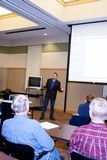
Nevada follows the requirements of the USEPA for training all Hazardous Waste Personnel.
- LQG RCRA Training – Initial training (w/i 6 months) and annual review.
- SQG RCRA Training – Ensure all employees are “thoroughly familiar” with how to handle hazardous waste and how to respond to a hazardous waste emergency.
- CESQG RCRA Training – No training requirement, but still a good idea. RCRA regulations applicable to a CESQG.
Uniform Hazardous Waste Manifest:
Nevada, like every other state since September 5, 2006, requires use of the Uniform Hazardous Waste Manifest for the transportation of a hazardous waste.
Nevada also has the following state-specific requirements related to the management of the Uniform Hazardous Waste Manifest:
- If the Treatment, Storage, or Disposal Facility (TSDF) for the hazardous waste is outside of Nevada, the generator must mail to the NDEP a copy of the final Uniform Hazardous Waste Manifest (signed as received by the TSDF) within 30 days of the date of the TSDF’s signature. Mail the Manifest to:
Nevada Division of Environmental Protection
Bureau of Waste Management
901 S. Stewart Street, Suite 4001
Carson City, NV 89701-5249
(775) 687-9462
Reporting:
Large Quantity Generators of hazardous waste (not SQGs or CESQGs) must submit the Biennial Hazardous Waste Report by March 1st of every even-numbered year for the previous calendar year.
Recordkeeping:
NDEP follows the Federal Rule for maintaining records of RCRA documents. In general, an LQG or SQG must maintain copies of documents as a record for three years from its effective date.
On-Site Management of Hazardous Waste in Containers:
- Containers in good condition
- Containers compatible with contents.
- Containers kept closed except when adding or removing hazardous waste.
- Hazardous waste or hazardous waste residue must not be present on the outside of the container.
- Containers must be labeled:
- “Hazardous Waste”
- Date of initial accumulation (unless managed in a Satellite Accumulation Area pursuant to 40 CFR 262.34(c)).
- Applicable hazardous waste codes. This is a unique requirement of the NDEP and is not found in USEPA regulations.
Contact me with any questions you may have about the transportation of hazardous materials or the management of hazardous waste Daniels Training Services 815.821.1550 |
Satellite Accumulation of Hazardous Waste:
NDEP follows the Federal Rule at 40 CFR 262.34(c):
- Limited to containers only, no tanks.
- Container must be at or near point of generation of hazardous waste.
- Container must be under the control of the operator of the process generating the hazardous waste.
- No more than 55 gallons of hazardous waste or 1 quart of acute hazardous waste in a single satellite accumulation area.
- No limit on number of satellite accumulation areas in a facility or the aggregate volume of hazardous waste maintained in satellite accumulation areas.
- Container must be labeled with the words “Hazardous Waste” or some other description of the container contents, eg. “Paint Waste”.
- May have more than one container in a single satellite accumulation area.
- May have more than one type of hazardous waste in a single satellite accumulation area.
- When 55 gallon or 1 quart volume threshold is reached, hazardous waste container must be immediately dated. Generator is allowed three calendar days to move the hazardous waste container from the satellite accumulation area to the central accumulation area (aka: 90/180 day accumulation area). Once moved to the central accumulation area, the generator may re-date the container and accumulate it on-site for the number of days appropriate for their hazardous waste generator status.
- Container in satellite accumulation area must be kept closed except when adding or removing hazardous waste. Container must be maintained in good condition.
- Containers in satellite accumulation areas are not subject to the following:
- Training requirements for facility personnel, though training is still highly recommended.
- Weekly container inspections, though recommended.
- RCRA air emission standards of 40 CFR 265, Subpart CC.
- Hazardous waste managed correctly in a satellite accumulation area is not subject to on-site accumulation time limits.
- Hazardous waste managed in a satellite accumulation area continues to be counted towards a generators hazardous waste generator status.
Management of Solvent-Contaminated Wipes:
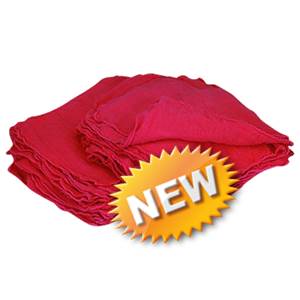
A conditional exclusion for solvent-contaminated wipes from both Solid Waste & Hazardous Waste became effective in the Federal regulations of the USEPA on January 31, 2014. States with authorized hazardous waste programs have the option to adopt the regulation as is or with its own modifications or to reject the conditional exclusion entirely (Status of Solvent Wipe Conditional Exclusion in Your State).
Pursuant to a conversation with the University of Nevada Environmental Program representative on September 12, 2014, NDEP intends to adopt the Federal exclusion in its current form at its next regularly scheduled legislative session in September or October 2015. In the interim, a company must conduct a hazardous waste determination for its solvent-contaminated wipes and manage them according to the hazardous waste regulations.
Use of State-Certified Labs for Hazardous Waste Determination:
Pursuant to Nevada Revised Statutes @ NRS 459.502, NDEP requires the use of state-certified labs for analysis completed as part of the hazardous waste determination: NDEP Laboratory Certification Program. The link to the Nevada Certified Lab List is in the middle of the page.
Reporting of Spills, Releases and Emergencies:
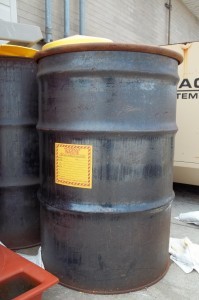
Reporting spills in-state: 1-888-331-6337
Out of state: 1-775-687-9485
Non-Hazardous Waste:
In Nevada, a non-hazardous industrial waste must be managed on-site in a manner that does not cause harm to the environment or create a nuisance. In addition, non-hazardous industrial waste must be disposed of in a state-approve or RCRA permitted facility.
Do you have a question about some aspect of the Nevada hazardous waste regulations that you don’t see here? Please ask me. I’m glad to help.
Daniels Training Services 815.821.1550 |
Additional Information Available:
- USEPA Region 9 information on Nevada Waste Programs
- Join the NDEP mailing list to receive notification of its public notices, hearings, workshops, and events relating to hazardous waste management in Nevada Hazardous Waste Electronic Email List
- Free Technical Assistance is available for hazardous waste generators in Nevada from the Nevada Small Business Development Center Business Environmental Program:
- Las Vegas (702) 866 5927
- Reno (775) 834-3674
- In-state Toll Free (800) 882 3233

